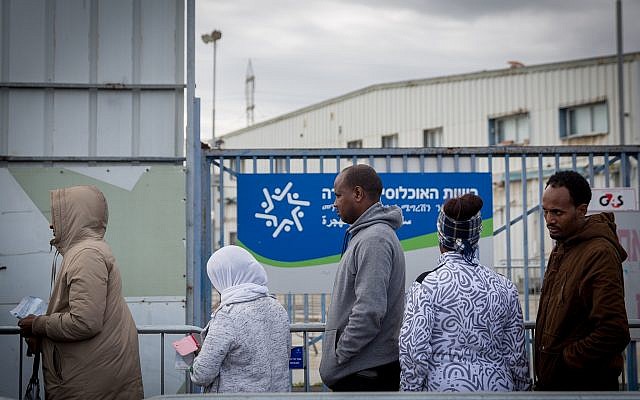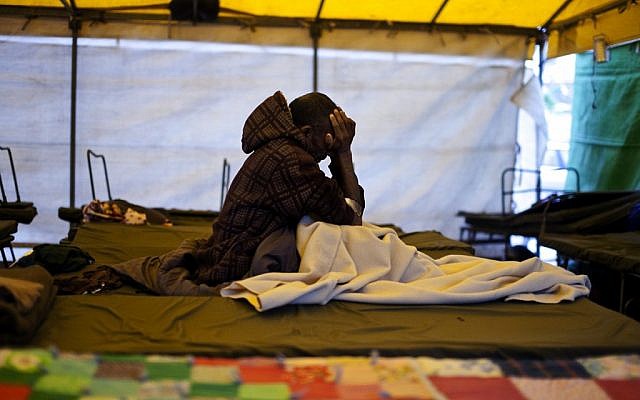Wednesday’s opinion was seen as a preemptive move by the state, which recognized following the High Court petitions that its current deportation plan ostensibly would not have survived a legal challenge.
Israel is seeking to remove tens of thousands of migrants who entered Israel illegally, mostly from Sudan and Eritrea, by sending them to countries widely reported to be Uganda and Rwanda.
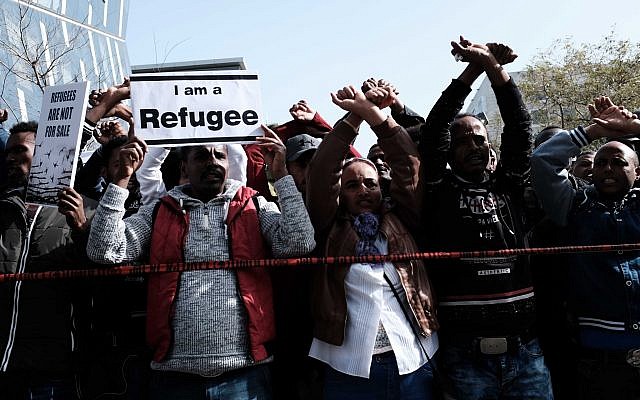
According to reports, the government hopes to deport 600 asylum seekers per month for the first year. People with open asylum applications cannot be deported before the applications are resolved. At this point, women and children are also not under threat of deportation. An asylum seeker who refuses deportation will be imprisoned indefinitely in the Saharonim prison.
Critics charge that the plan does not offer sufficient protections to the asylum seekers, and that Israel has not been transparent about where the asylum seekers are being sent.
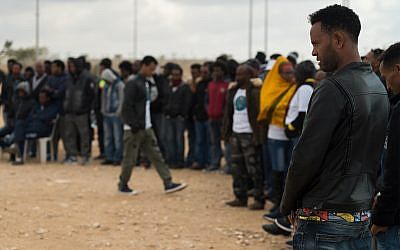
In it’s response to the court, the state made clear that its administrative procedures in preparation for the deportations — which are scheduled to be carried out by April 1 — will continue.
In addition, asylum seekers already in Israeli custody will not be released and the state will continue holding deportation hearings for asylum seekers.
High Court judges are expected to rule in the coming days on whether to issue an interim order that will freeze the implementation of the entire government plan — including even the deportation preparations — as it considers a final decision on the petitions against it.
On Tuesday, Israel closed the Holot detention center, an open air facility where the state housed illegal migrants largely from Eritrea and Sudan. The move is seen as a major step toward implementing the deportation plan.
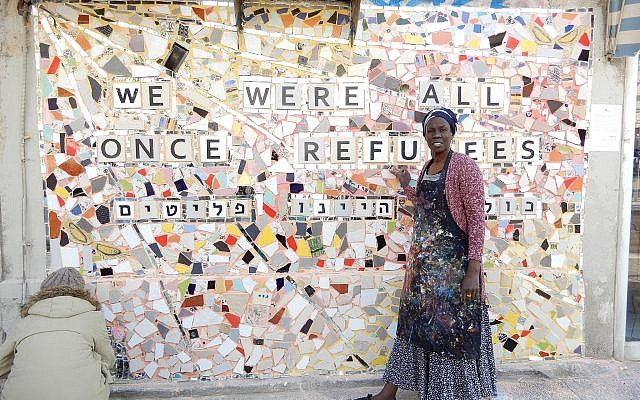
In the four years since the center opened, approximately 13,000 male illegal immigrants have spent time there. The desert facility was considered “open,” meaning those housed there could leave during the day.
After human rights organizations petitioned the High Court, justices ruled that no one could be imprisoned at Holot for more than 12 months. The center was originally envisioned as a detention center to house illegal migrants who refused to leave the country.
According to the Population Authority, since the early 2000s, 64,850 people illegally crossed the border from Egypt into Israel.
There are approximately 38,000 African asylum seekers currently in Israel, according to the Interior Ministry. About 72 percent of the migrants are Eritrean and 20% are Sudanese.
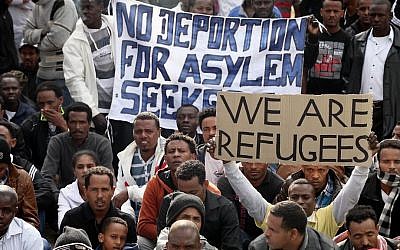
Eritrean asylum seekers fled a harsh dictator and compulsory military service that can last for 40 years. Sudanese asylum seekers fled genocide in Darfur as well as fighting between Sudan and South Sudan.
However, Israeli officials contend the asylum seekers are economic migrants looking for work opportunities and a higher standard of living.
“We are not taking action against refugees,” Netanyahu said at a cabinet meeting in January. “We are taking action against illegal immigrants who come here for work purposes. Israel will continue to be a shelter for true refugees and will eject illegal infiltrators.”
The majority of African asylum seekers arrived in Israel between 2006 and 2012. In 2010, the height of the wave of asylum seekers crossing from the Sinai to Israel, 1,300 people illegally crossed the border each month. Once they crossed the border, Israeli soldiers brought them for processing to holding facilities coordinated with the Population Authority. Afterwards, many were given bus tickets to Tel Aviv’s central bus station, but no other services.
Residents of south Tel Aviv, where some 90% of the asylum seekers have settled according to police statistics, complain that the newcomers have changed the blue-collar neighborhood and are responsible for an increase in crime.
South Tel Aviv is living under a “reign of terrorism from illegal migrants,” Deputy Foreign Minister Tzipi Hotovely (Likud) charged last month.
In 2014, Israel completed construction of a 242-kilometer (150-mile) electronic fence along the border with Sinai. Illegal immigration through Sinai dropped to just 11 cases in 2016, and 0 in 2017.
Israel has “willingly deported” approximately 4,000 asylum seekers over the past four years, according to The United Nations High Commission on Refugees, which has expressed concern over the program.
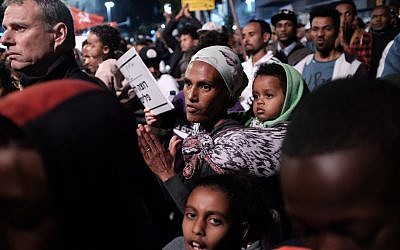
UNHCR is in talks with a number of countries to resettle some asylum seekers from Israel in exchange for Israel giving permanent status to refugees, who would then remain in Israel.

